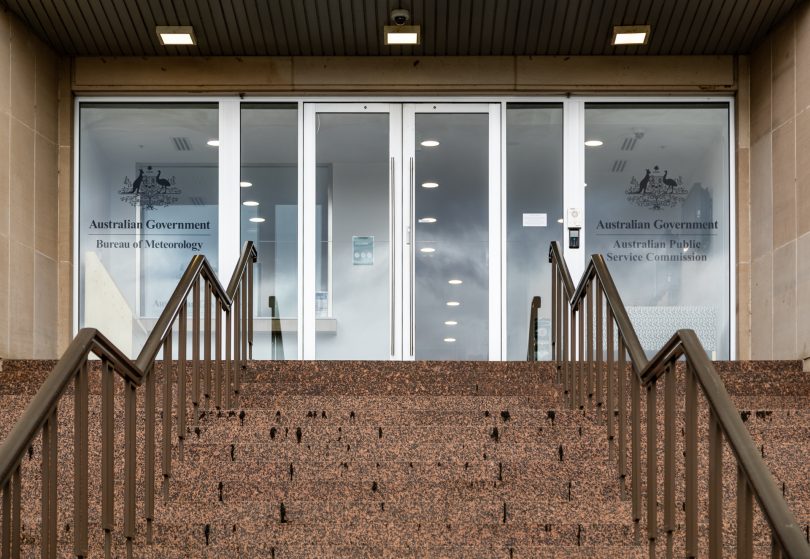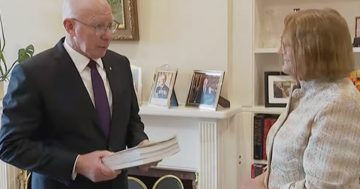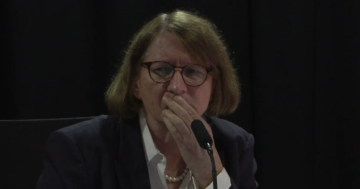
The Australian Public Service Commission has completed only one of its 16 investigations over Robodebt. Photo: Michelle Kroll.
Only one of the 16 unnamed Commonwealth public servants investigated over their roles in the failed and illegal Robodebt scheme has had their matter concluded, with no sanctions issued against them.
The Royal Commission into the Robodebt Scheme referred 16 employees to the Australian Public Service Commission for investigation over possible breaches of the APS Code of Conduct.
That was seven months ago and so far, only one matter has concluded, while four other individuals have been issued with preliminary findings against them and 11 other matters remain entirely unresolved.
In an update issued on Thursday (8 February), the APSC explained that all 16 matters were complex, with a significant volume of evidence to consider.
“Sufficient time is required to allow the independent reviewers, Mr Stephen Sedgwick AO and Ms Penny Shakespeare, to conduct the inquiries in a manner that is robust and affords respondents appropriate procedural fairness,” the statement said.
With just one matter completed, the 15 other investigations have proceeded to the issuing of notices outlining the grounds and categories for potential breach of the APS Code of Conduct.
“Of the 15 investigations, 4 individuals have been issued a preliminary determination that they have breached one or more elements of the APS Code of Conduct; 11 investigations remain current,” the APSC said.
“One investigation has concluded as the individual’s actions did not meet the threshold to issue a notice of suspected breach.
“Final determinations and, if appropriate, decisions about sanctions will be communicated to individuals once preliminary determinations are finalised.
“The timeframe for the conclusion of inquiries depends on various factors, including the complexity of each matter, the number of submissions and any extensions that may be requested by respondents.”
Delivering her three-volume, 990-page report to the Governor-General David Hurley in July last year, Royal Commissioner Catherine Holmes included a sealed section with recommendations of who should be considered for possible civil and criminal prosecutions.
The names included the 16 public servants.
In her letter to the Governor-General, Commissioner Holmes noted that her sealed section had been provided to the National Anti-Corruption Commission, the Australian Federal Police, the Australian Public Service Commissioner, and the Law Society of the ACT.
“I do not propose to name the entities to which I have made referrals because it would only lead to speculation about who had been referred where, which would almost certainly be wrong,” she wrote.
Those remarks themselves, however, led to immediate and intense speculation over who might have been named.
The Federal Government sought legal advice over whether and/or when it can publicly release the names.
At the time of its release, Prime Minister Anthony Albanese took great delight in reading out sections of the report where Commissioner Holmes criticises the actions of former Coalition ministers – including former prime minister Scott Morrison – and where she dismisses or refutes some of the evidence they gave to the royal commission into the Robodebt scheme.
But it was the additional sealed section that had everyone talking.
The PM was clear that he wanted the names to be released, but that hasn’t happened yet.
“It would certainly be my preference unless there is some legal impediment to it, but I’ll seek proper advice on that,” Mr Albanese said after the report’s release.
“I haven’t yet received advice from the Attorney-General’s Department, from the appropriate authorities on that.
“It’s pretty clear that the correspondence from the Royal Commissioner, Catherine Holmes, makes it clear in her wording of her letter to the government, it’s not about people being in the sealed section remaining sealed forever.
“In her words, to read from the letter, ‘I recommend that this additional chapter remain sealed and not be tabled with the rest of the report so as not to prejudice the conduct of any future civil action or criminal prosecutions’.
“My view is that that clearly is saying that is the period in which this information is being kept for the purpose of not prejudicing that action.”
Robodebt was an automated debt assessment and recovery program employed by the Department of Human Services and its successor, Services Australia, for Centrelink compliance.
It began in 2016 and became hugely controversial due to its incorrect calculations and threats to issue illegal notices, causing enormous physical and mental health issues among notice recipients.
It was subsequently ruled illegal by the High Court, and following Labor’s election in 2022, Mr Albanese established the royal commission into the matter.
Original Article published by Chris Johnson on Riotact.










